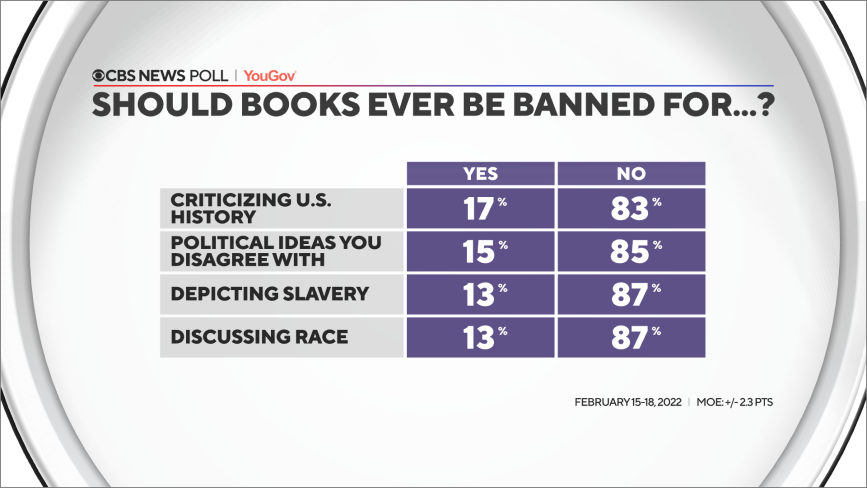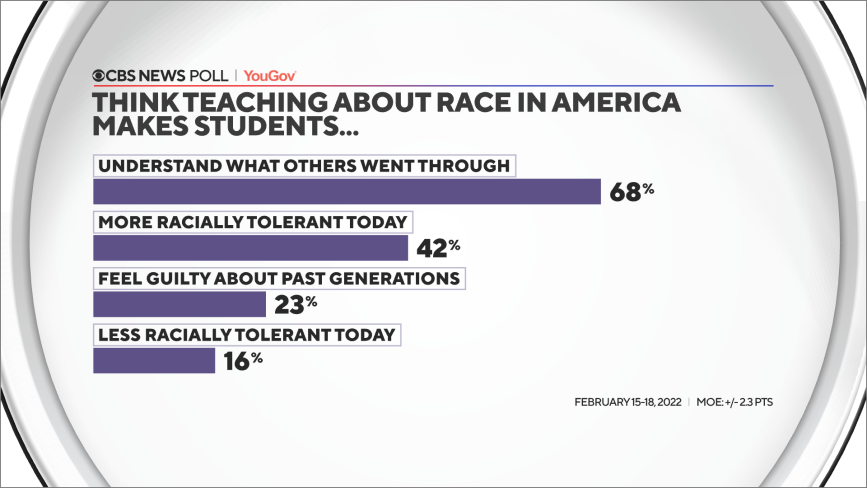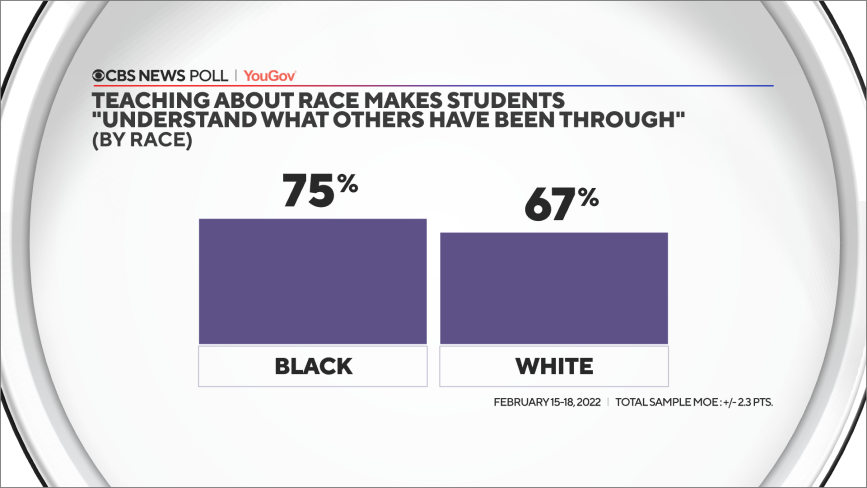Poll Shows Majority Oppose Banning Books About History, Race
A recent CBS News/YouGov poll showed Americans do not support removing books about race from schools and believe that students should be taught the history of race and racism in the United States.
The voices of those who want to ban books about race may be the loudest at the moment, but a recent poll shows that most Americans don't want to rid schools of books that may make white students uncomfortable.
According to a recent CBS News/YouGov poll, a large majority of Americans don't think books that discuss race, criticize America's history of slavery, or share different political views should be banned from school libraries or classrooms. More than 80 percent of those asked said those books should be taught.

The CBS News/YouGov survey was conducted with a "nationally representative sample" of 2,494 U.S. adult residents interviewed between February 15-18.
"Respondents were selected to be representative of adults nationwide with an oversample of African-American respondents included, and the final sample as reported was weighted to be representative of adults nationwide according to gender, age, race, and education based on the U.S. Census American Community Survey and Current Population Survey, as well as to 2020 presidential vote," according to the CBS News. "The margin of error for the total sample is ±2.3 points. The margin of error for the sample of African Americans is ±5.0 points."
Americans are also in favor of public schools teaching about issues of race and the country's history of racism, in part because those who were polled believe it helps children understand what others have gone through.
"The idea that teaching about race makes students feel guilty about past generations or makes them less racially tolerant today gets little traction with most Americans," the report said.


RELATED
The job outlook in 2030: Librarians will be in demand
The job outlook in 2030: Librarians will be in demand
ALREADY A SUBSCRIBER? LOG IN
We are currently offering this content for free. Sign up now to activate your personal profile, where you can save articles for future viewing






Add Comment :-
Be the first reader to comment.
Comment Policy:
Comment should not be empty !!!